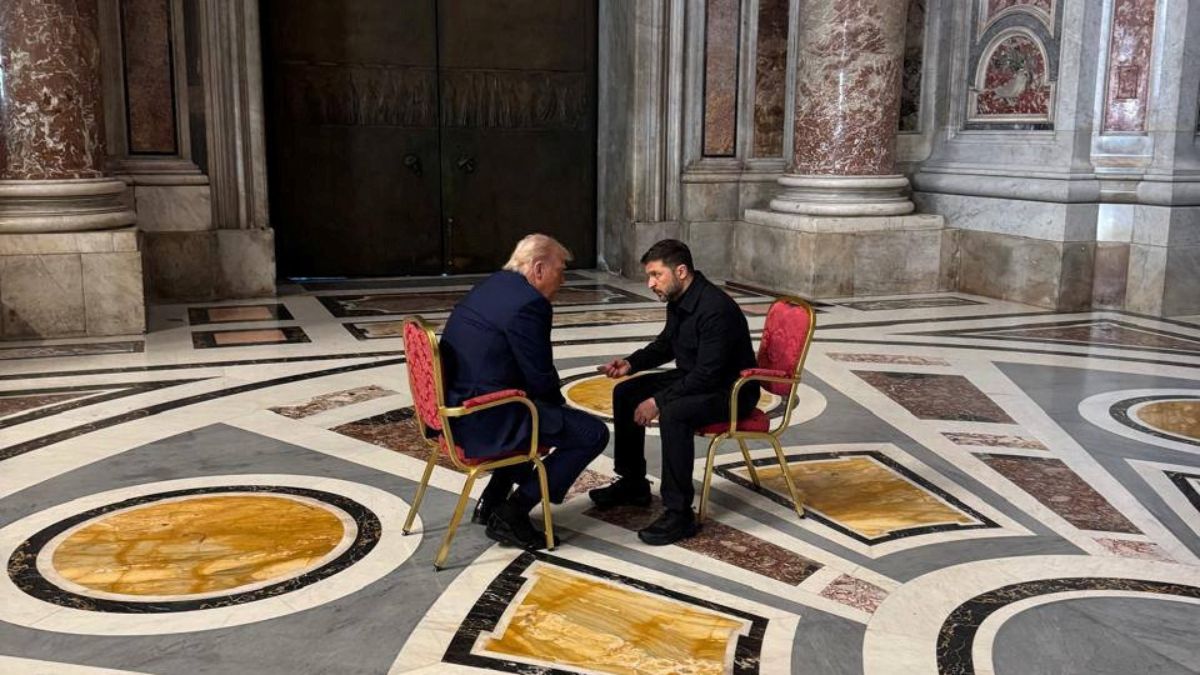US President Donald Trump privately encouraged Ukrainian President Volodymyr Zelenskyy to intensify attacks within Russian territory, asking whether Ukraine could target cities like Moscow and St. Petersburg if provided with the appropriate weapons, according to a report, citing two people briefed on the conversation.
“Volodymyr, can you hit Moscow? . . . Can you hit St Petersburg too?” Financial Times quoted Trump as saying during a July 4 call with Zelensky.
Zelenskyy reportedly replied, “Absolutely. We can if you give us the weapons.”
The provocative remarks made by Trump to Zelenskyy reportedly came just a day after a tense phone call with Russian President Vladimir Putin, which Trump later described as “bad,” according to Financial Times, citing sources.
Trump’s conversation with Zelenskyy is being viewed as a direct response to Putin’s refusal to engage in US-backed ceasefire negotiations. The behind-the-scenes exchange reflects growing frustration within the Trump administration over Moscow’s unwillingness to compromise and signals a sharp shift from Trump’s earlier campaign pledge to avoid deeper US involvement in foreign conflicts.
It also contrasts with his traditionally cautious stance toward confronting Russia.
Trump signalled support for Ukraine launching long-range strikes, describing the approach as a way to “make them (Russians) feel the pain” and force the Kremlin to negotiate, reported FT, citing two individuals familiar with the call.
Impact Shorts
More ShortsWhile it is still uncertain whether the US will supply long-range weapons to Ukraine, a Western official familiar with the discussions told FT that Trump’s remarks reflect a growing sentiment among Ukraine’s Western allies, one that supports more aggressive strikes inside Russian territory to “bring the war to Muscovites.”
This view, the official added, is quietly gaining momentum among American policymakers as frustration with Moscow’s stance continues to build.
Meanwhile, neither the White House nor the Ukrainian president’s office has responded to requests for comment on the report.
On Monday, in major policy shift, President Trump announced new weapons for Ukraine and threatened sanctions on countries that continue buying Russian exports unless Moscow agrees to a peace deal within 50 days.
Sitting alongside Nato Secretary General Mark Rutte in the Oval Office, Trump expressed frustration with Russian President Vladimir Putin.
“My conversations with him are very pleasant, and then the missiles go off at night,” Trump told reporters, adding that Putin had repeatedly broken promises to end the war. “He’s fooled a lot of people,” Trump said, calling Putin a “tough guy.”
“He fooled Clinton, Bush, Obama, Biden — he didn’t fool me,” he added.
Trump said billions of dollars in advanced weapons would be sent to Ukraine, including urgently requested Patriot air defence systems.
“We’re going to make top-of-the-line weapons, and they’ll be sent to Nato,” he said, clarifying that Nato allies would cover the costs.
“It’s a full complement with the batteries,” he noted. “We’re going to have some come very soon, within days… a couple of the countries that have Patriots are going to swap over and will replace the Patriots with the ones they have.”
Up to 17 Patriot batteries ordered by other countries could be diverted to Ukraine “very quickly,” he said.
Trump’s threat to impose secondary sanctions—targeting nations that continue to buy Russian oil—would mark a significant escalation in Western sanctions policy.
Currently, while Western nations have largely cut direct financial ties with Moscow, they have stopped short of penalising other countries such as China and India for continuing to import Russian oil, allowing the Kremlin to earn hundreds of billions in revenues since the war began.
Bipartisan support is growing in Congress for legislation that would authorise such measures.
With inputs from agencies


)

)
)
)
)
)
)
)
)



